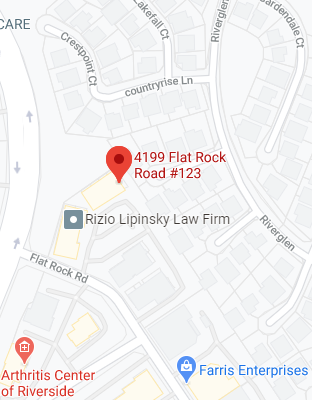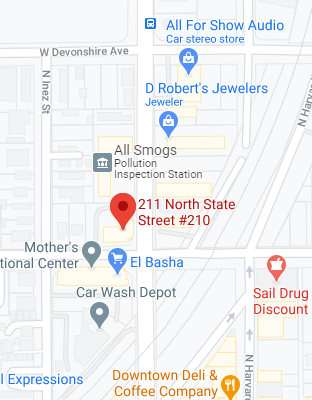
Does an influx of immigrants increase crime?
Whenever the media reports that an immigrant has committed an indefensible action, the public discussion is often inundated with political demagoguery.
Immigrants, such propagandists proclaim, are bad people who only bring crime, drugs, and violence to their new communities.
Professional research indicates otherwise.
Over the past decade, study after study has shown that first generation immigrants actually produce the opposite effect – they make their communities safer.
A False Mythology: Immigrants And Crime
One of the main problems with understanding immigration issues is that you can always count on a few Congressional representatives to articulate flawed insight.
More often than not, their goal is to intensify, not diminish, xenophobic fears held by many citizens. Rather than guide the public to a point of rational understandings, they prefer to widen the divide among individuals from varying political orientations.
To put it bluntly, this group of sound bite politicians is not interested in honest give-and-take discussions of tough immigration issues.
And unfortunately, even the false rhetoric emanating from the White House during the past four years, labelling immigrants as rapists and murderers, has worsened this propensity.
Unraveling The Evidence: First Generation Immigrants And Lower Crime Rates
A few weeks ago, the issue regarding immigrants and crime publicly arose once again due to a news article on the social impact of undocumented immigrants in the Conversation, an independent non-profit global network of newsrooms, that outlined the findings of a recent study published by the Journal of Crime and Justice.
The Journal, which is published by the Midwestern Criminal Justice Association, found that undocumented immigration either reduces or has no effect on crime rates across all metropolitan populations.
The Journal of Crime and Justice study does not stand alone in this conclusion.
Several other professional organizations and research institutions have published studies reaching the same general conclusion:
- The CATO Institute, a public policy research organization, in 2019
- The Marshall Project, a nonpartisan, nonprofit news organization that studies the U.S. criminal justice system, in 2016 and 2019
In addition, the Texas Tribune’s Bordering On Insecurity project found that crime rates are lower in border counties than they are in cities located further away from the border, not only in Texas, but also New Mexico, Arizona, and California.
Further, as the New York Times has reported, there is no relationship between deportations and crime. In other words, local areas where aggressive deportation measures and closer relations with Immigration and Customs Enforcement (ICE) have been enacted are not any more safer than regions with less stringent law enforcement policies.
These conclusions are not new.
Dating all the way back to the early 2000s, strong evidence began to emerge that show in cities with large immigrant populations, like Houston, Los Angeles, New York, and Miami, such communities have lower crime rates than they did prior to the huge influx of newcomers 20 years ago.
Critics of these studies stress that the low crime rates do not hold across successive generations of immigrants.
In other words, the crime rates of children and grandchildren of immigrants – children who are born in the U.S. – are higher than the crime rates of the first generation of immigrants.
They’re correct.
But they fail to point out that although the crime rates of children and grandchildren of immigrants are higher than that of their ancestors, their crime rates are still lower than those of children and grandchildren born to native-born U.S. citizens.
The Revitalizing Impact Of Immigrant Investment In Their Communities
For those who have grown up in such areas, these findings are not surprising.
In my view, the key ingredients appear two-fold.
First, on the whole, immigrants do not move into higher echelon areas. Instead, they move into neighborhoods which have often been neglected by local and state governments and large companies.
As immigrants establish roots, they build a community, they create small businesses. In the process, they improve the quality of their neighborhoods and bring energy into revamping the previously socially and economically abandoned areas.
Second, immigrants living in these areas want to establish stable community ties. They want a life better than the one they left behind.
The difference between neighborhoods that are strapped down with absentee landlords and uninvolved managers renting to temporary residents versus areas where folks are actively laying down roots by becoming part of local schools, churches, businesses, and community centers is enormous.
In short, immigrants bring much-needed community pride to previously diplidated areas. As community pride bounces back, the crime rate drops.
And that’s good news for all Americans.
Alas, if only our politicians would study the evidence. The false mythology regarding immigrants and crime rates would dissipate.
With one less immigration battle to fight, the task of developing comprehensive reform might finally move forward.
Recommended Reading:
Ready to take a serious and honest look at the strengths and weaknesses of your immigration case? Let’s get started with a personalized strategy and planning session . . .
Here's How It Works
1
Call Our Office
Immigration law doesn’t have to be confusing. You don’t have to live in fear of being deported and separated from your family. A comprehensive 30-minute Strategy And Planning Session will take the stress out of not knowing your options first-hand.
2
Meet With Carlos
Every case is unique. We refuse to take cookie-cutter approaches to your case. After we discuss the ins and outs of your immigration and family situation, Carlos will outline your chances for success and how to overcome obstacles standing in your way.
3
No Pressure - No False
Promises
Hiring a lawyer is a big investment, and we will not pressure you to hire us or push you into a plan you don’t understand. If we cannot help you, we will tell you. We will not take your case, unless we believe we can make a difference for you and your family.




